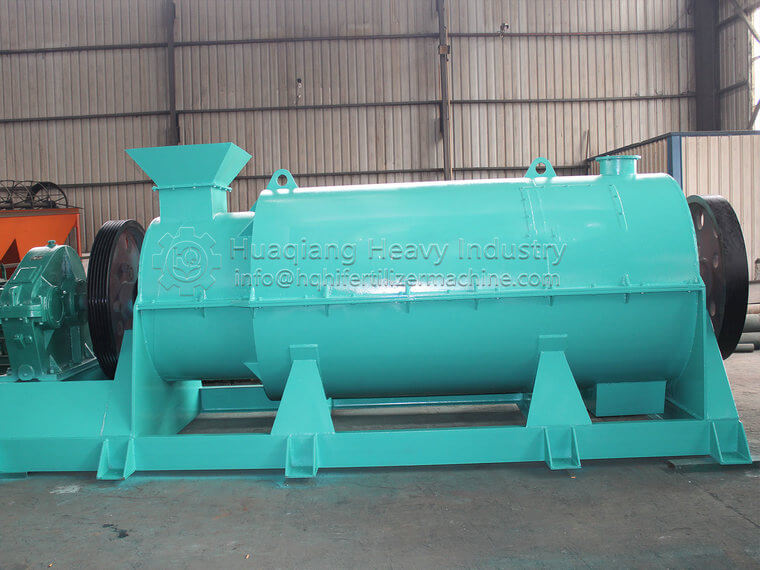Compared with other organic fertilizers, the granulation process of earthworm castings organic fertilizer has its own characteristics. Therefore, when selecting and using a granulator, the following special requirements need to be considered:
1. Moderate viscosity
Adhesive selection: Earthworm castings themselves have a certain degree of viscosity, but may not be sufficient to form stable and uniform particles. Therefore, the granulator needs to be able to process raw materials with appropriate amounts of binders (such as humic acid, starch, cellulose, etc.) added to enhance the stability of the particles.
Adhesive addition system: The organic fertilizer granulator should be equipped with a precise adhesive addition system to control the amount of adhesive added and avoid excessive hardness or insufficient looseness of particles.
2. Humidity control
Humidity sensitivity: The moisture content of earthworm castings has a significant impact on granulation efficiency, and high or low humidity can affect particle formation and stability. Therefore, the granulator should have humidity regulation capability, or humidity regulation equipment should be equipped in the production line to ensure that the raw materials are pelletized at a suitable humidity.
Humidity monitoring: The organic fertilizer granulator should be equipped with a humidity sensor to monitor the humidity of the raw materials in real time, ensuring humidity control during the granulation process.
3. Temperature management
Temperature sensitivity: Microorganisms and enzymes in earthworm castings are sensitive to temperature, and excessive temperature can damage their activity, affecting the biological activity of organic fertilizers. Therefore, the granulator should be designed with a good heat dissipation system to avoid excessive temperature during the granulation process.
4. Particle strength and uniformity
Particle strength: The particles of earthworm manure organic fertilizer need to have a certain mechanical strength to avoid breakage during transportation and storage. The granulator should be designed with a mechanism for adjusting particle strength, such as pressure regulation.
Particle uniformity: The uniformity of particles has a direct impact on the effectiveness of fertilization. The granulator should be able to stably produce particles with consistent particle size and shape.
5. Cleaning and maintenance
Easy to clean: Earthworm castings may contain incompletely decomposed organic matter, which can accumulate in equipment and affect granulation efficiency. The granulator should be designed with a structure that is easy to clean, facilitating regular maintenance and cleaning.
Anti corrosion design: The acidity and alkalinity of earthworm castings may cause corrosion to equipment. Organic fertilizer granulators should use corrosion-resistant materials or coatings to extend the service life of the equipment.
6. Environmental requirements
Low dust operation: Dust may be generated during the granulation process, and the organic fertilizer granulator should be equipped with an efficient dust removal system to reduce pollution to the working environment.
In summary, the earthworm manure organic fertilizer granulator needs to have good viscosity, humidity, and temperature control capabilities, while ensuring particle strength and uniformity, easy cleaning and maintenance, and meeting environmental requirements. When choosing a granulator, these factors should be comprehensively considered to ensure high-quality production of earthworm manure organic fertilizer.